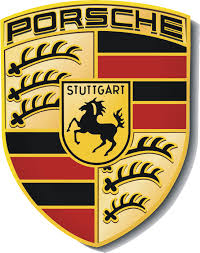Cayenne S (9PA) V8-4.5L (2003)
/v8-4.5l/Page-472001.png)
Engine Oil: Technical Service Bulletins
Engine - Approved Engine Oils Overview
Freigabe/Approval
02/07 ENU 1701 1
Overview Of Approved Engine Oils
Note:
This Technical Information replaces the following TI: All No. 2/06 dated July 28, 2006.
Vehicle Type:
All Porsche standard production vehicles with the exception of the Porsche Cayenne (V6). The engine oils for the Porsche Cayenne (V6) are listed in a
separate bulletin.
Model Year:
As of 1984
Concerns:
Overview of engine oils approved by Porsche, "Porsche approval list".
Information:
Approved Oil Availability
Porsche approved oil availability varies by global region. Some oils on the following "Approved List" may not be available in certain regions of the
North American market, or, may only be available in overseas markets exclusively.
When searching the "Approved List" for a particular manufacturer or brand name, keep in mind that the below listed "Sales Region Codes" are marketed
for the North American region:
CDN - Canada
USA- United States of America
WW - World-Wide
Oil Quality:
Note:
Use only oils approved by Porsche listed in this bulletin, all previously issued bulletins are no longer valid. Remaining inventory of engine oil as
specified in the previously valid TI "Group 1, No. 2/06, dated July 28, 2006" can be used up to June 30, 2007. Please observe the "Valid until
DD/MM/YY" column in the oil approval table provided below.
The engine oil is not only a lubricant, but also fulfils many functions at the same time such as component cooling, component cleaning, and protection
from corrosion. To be able to fulfil these tasks, the oil contains specially developed additives.
Mineral oils are extracted directly from crude oil. Using a series of chemical processes, these oils can be further refined (hydrocracked oils) or
completely transformed (synthetic oils). These oils provide a higher level of performance than pure mineral oils.
Only hydrocracked or synthetic oils are now approved by Porsche.
Non-Seasonal light-Running Oils:
Non-seasonal oils are distinguished by their low viscosity at low temperatures as well as a high level of temperature stability and a particularly low
tendency to evaporate at high temperatures due to their composition. Oils that meet such high performance requirements can be used as non-seasonal oils
while taking into consideration the correct temperature range (see the "Temperature ranges" point). These oils also have good light-running properties
because of their low viscosity at low temperatures and can therefore be referred to as non-seasonal light-running oils.
Only non-seasonal light-running oils are now approved by Porsche.
Viscosity:
The viscosity of an engine oil is specified by the SAE viscosity class. The first number and the letter W (winter) identify the viscosity at lower
temperatures. For example: 0W or 5W, where 5W is more viscous than 0W.
The second number indicates the viscosity at high temperatures. For example: 40 or 50, where 40 is less viscous than 50 at the same temperature.
